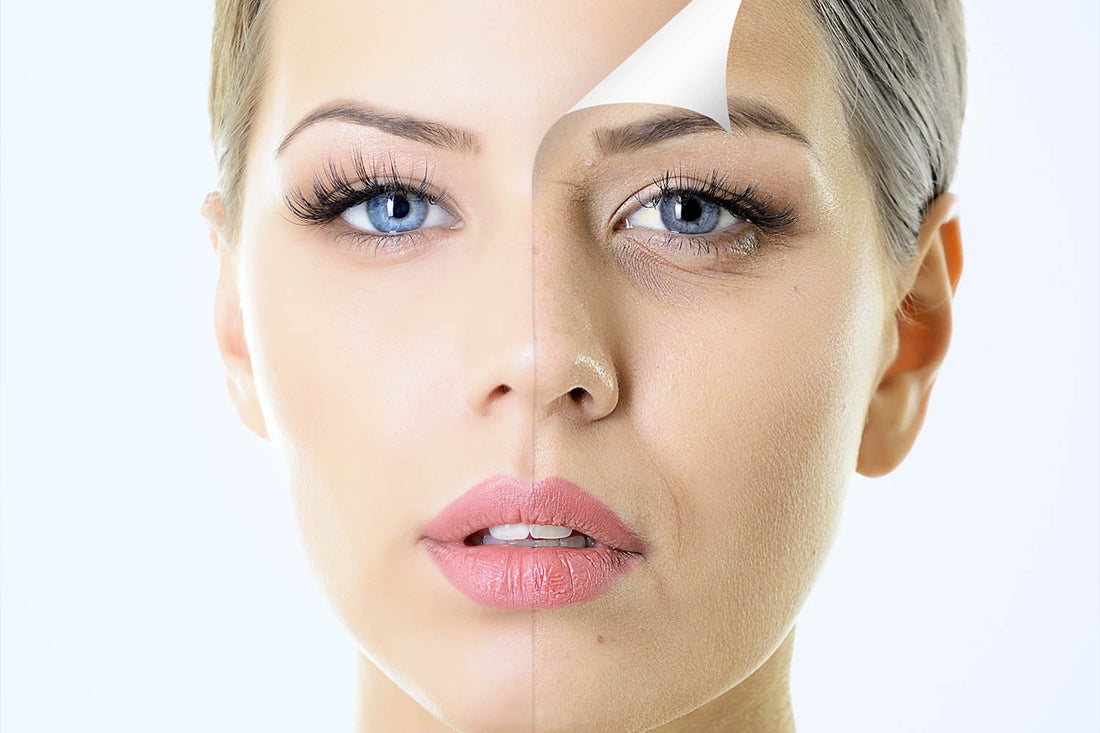
Foods to help us turn back the clock
Share
Not all foods are created equal. If we can avoid our consumption of five harmful foods, we can slow down the physical ageing process and enjoy optimum health for as long as possible.
The five most ageing foods
1. Sugar
We’ve talked about it before here but it’s worth reminding ourselves of the toxic effects of sugar. Involved in four of the ageing processes - acidification, inflammation, sluggish digestion and hormonal imbalance - sugar slows the body’s ability to regenerate itself and so speeds the ageing process. Sugar can cause aching joints, cravings, lack of muscle tone, mood swings, spots and wrinkles. Sugar is the most ageing food of all and it has been shown to shorten the lifespan.
What you can do: Snack on beetroot, carrots, tomatoes and nuts. You can also substitute normal sugar with low GI sugar such as Xylitol, Agave or Yacon syrup.
2. Salt
It’s essential for life (you cannot live without it) yet most people simply don't realise that there are enormous differences between refined table and cooking salt and natural health-promoting salt. Today's artificially produced table and cooking salt is void of the vital trace minerals that make natural salts, such as Himalayan crystal salt, so vital and precious. For your body to function properly, you need holistic salt complete with all-natural elements.
What you can do: Swap your table salt for Himalayan salt which actually promotes bone strength and good digestion and promotes blood sugar health which in turn helps to reduce the visible signs of ageing.
3. Cow’s milk
Although cow’s milk is full of calcium, vitamins and protein, it also triggers four of the ageing processes – the slowdown of our digestion (causing bloating, constipation and diarrhoea); inflammation (mucus, stiff joints, IBS); hormonal imbalance (affecting blood sugar and oestrogen levels) and is acid-forming. Cow’s milk therefore needs to be balanced by eating alkalising foods such as vegetables and wheatgrass, otherwise calcium (an alkaline) is leached from bone and teeth, negating the effects of this so called calcium-rich food.
It has also been linked to serious health conditions, including diabetes, osteoporosis and some cancers, and it can be a major allergen linked to asthma and eczema.
What you can do: Swap cow’s milk for goat’s milk which is richer in many vitamins and minerals and contains anti-inflammatory elements to help boost friendly gut bacteria. Try cheeses such as feta and mozzarella (made from goat’s and buffalo milk respectively). To keep your calcium levels up, eat plenty of dark green leafy vegetables, beans, nuts, seeds and grains. Rice milk is also fantastic and tastes delicious mixed with a handful of frozen berries and a scoop of protein powder.
4. Meat
We all need protein but it doesn’t have to be through eating meat. As well as triggering all five ageing processes, it is loaded with saturated fats and calories. It’s also one of the most acid-forming foodstuffs and causes chronic inflammation.
What you can do: Eat more fish, a great source of protein, along with eggs, grains, legumes (beans, lentils, tofu), nuts and seeds. Protein powder is also excellent. Amino acids from wheatgrass juice and vegetables also convert to protein. If you don’t want to give up meat entirely, limit your consumption to free-range chicken, turkey or organic lamb.
5. Bad fats
Fats are essential for maintaining cell structure (helping the body to absorb fat-soluble vitamins) and for healthy-looking skin, brain function and energy. Every cell in our body has a protective outer coating of fat and protein. This coating needs to be fluid (i.e. made of good fats) to absorb nutrients and water. If, on the other hand, it lacks fluidity (because of a diet of bad fats) it will trigger many ageing symptoms such as a decline in skin quality, inflammation, allergies, depression, PMT, joint pain and osteoarthritis.
What are bad fats? Bad fats are trans-fats or hydrogenated fats and are widely found in processed foods such as cakes, fast food, ice cream and oils for deep frying. They interfere with cell function, and cause inflammation, acidification, oxidation and hormonal imbalance. They have been linked to depression, coronary heart disease, an increase in bad cholesterol and increasing risk of degenerative diseases. They may also lead to blood sugar disorders as they disrupt the action of insulin.
What you can do: Consume the good fats found in fish, avocados, soya, walnuts, pumpkin seeds and flaxseeds. It is better to eat full fat than processed low-fat foods and cold-pressed rather than refined oils. Good fats will help you get great looking skin and increase your energy levels as they’re full of essential omega-3 and omega-6 fatty acids.




